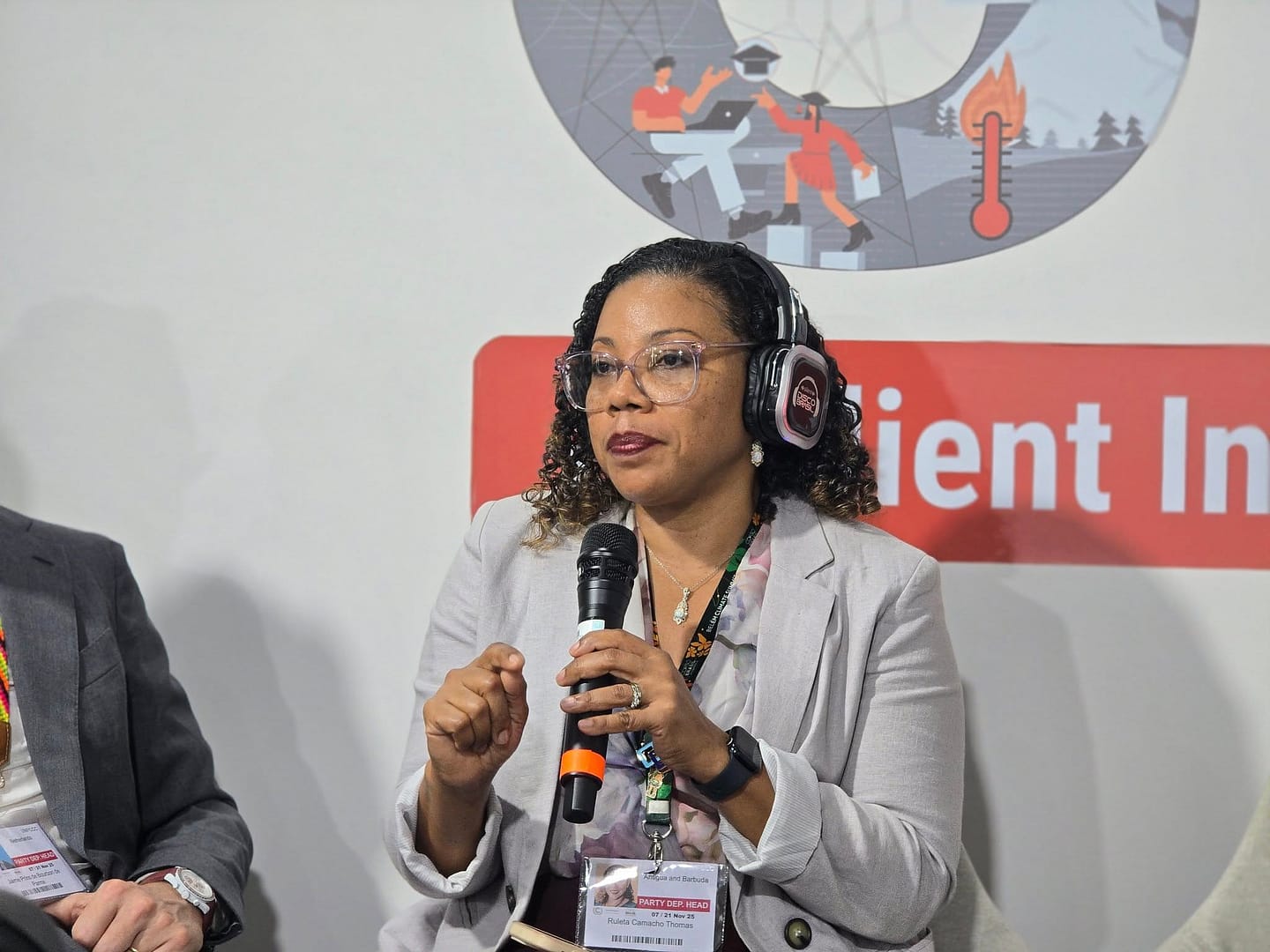At the COP30 summit, Antigua and Barbuda welcomed the unveiling of the Global Infrastructure Resilience (GIR 2025) Report, emphasizing that its true effectiveness hinges on the accessibility of financing and support for implementing resilience measures. Ambassador Ruleta Camacho Thomas highlighted the critical issue of affordability, stating that without accessible and affordable finance, even the most advanced technical guidance remains unattainable for those who need it most. She warned that the cost of resilience should not push families into poverty and urged global partners to ensure that vulnerable communities are not excluded from safety due to financial constraints. The Caribbean region, already grappling with severe climate impacts, sees households frequently transitioning from stability to hardship. When infrastructure fails—be it roofs, coastlines, or homes—the financial burden often falls entirely on families. With reinsurers retreating from parts of the region and insurance premiums skyrocketing, many households are left unprotected against climate disasters. Ambassador Camacho Thomas stressed that without affordable financing, individuals cannot afford the upfront costs of reinforcing their homes or rebuilding to resilient standards, leaving them increasingly vulnerable each season. This cycle, she noted, transforms vulnerability into poverty and exacerbates inequality. The issue extends to the national level, where each disaster amplifies debt burdens, hindering long-term resilience investments. For instance, Hurricane Melissa in Jamaica caused losses of nearly USD 8–9 billion, yet only USD 1 billion is available for recovery. This vast gap forces governments into new borrowing, stalling resilience efforts. Ambassador Camacho Thomas called for direct budget support for highly indebted nations and a rapid, equitable scale-up of international financing. While the GIR 2025 report provides essential evidence and tools, she emphasized that real access to finance is crucial for actionable progress.
Antigua and Barbuda Urges Direct Budget Support for Disaster-Hit States
